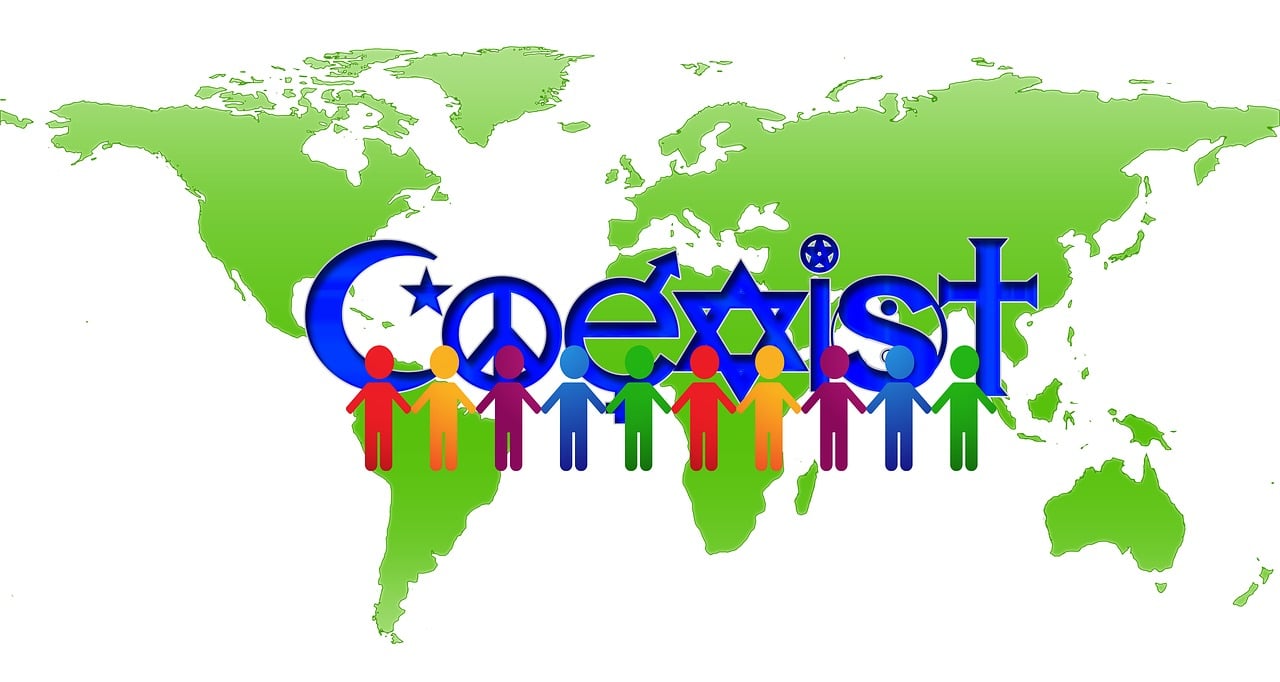
How we can all learn tolerance and love through faith.
Is it possible that the teachings of one God can bring an entire religious family together?
 The Jewish faith is one of the world's oldest and most influential religions. It is a monotheistic faith, meaning that it believes in one God. Based on the teachings of the Torah, which is the first five books of the Hebrew Bible, the Torah is the foundation of Jewish law and tradition and is the prime source of many of the beliefs and practices of Judaism.
The Jewish faith is one of the world's oldest and most influential religions. It is a monotheistic faith, meaning that it believes in one God. Based on the teachings of the Torah, which is the first five books of the Hebrew Bible, the Torah is the foundation of Jewish law and tradition and is the prime source of many of the beliefs and practices of Judaism.
So how does that belief in one God, the purported creator of the universe and all that is in it, lead us to be so tolerant and welcoming to all faiths? From the opening scribes found in the book of Exodus, the deliverance of a nation held by religious oppression, the word as we know it, was set into law and commandment, which is why God is seen as a loving and compassionate being who is always present and available to help and guide people.
Jewish faith also emphasizes the importance of living a moral and ethical life and of treating others with respect and kindness. With a strong emphasis on community and family, Jews are encouraged to take part in activities that bring them closer to their faith and those around them. This includes:
- Attending synagogue services, observing the Sabbath, and celebrating Jewish holidays.
- Having a strong emphasis on education developed to encourage and support learning about their faith and continuing to study the Torah. This is seen as a way to deepen their understanding of the faith and to become more knowledgeable about their beliefs and practices.
- Vow to commit to social justice. Jews are encouraged to work for the betterment of society and to fight for the rights of all people. This includes fighting for the rights of the oppressed, the poor, and the marginalized.
The Jewish faith is a complex and diverse faith, and it has many different meanings and interpretations. It is a faith that is based on love, compassion, and justice, and it is a faith that encourages people to live a life of meaning and purpose.
What defines Christianity, and is it considered to be Omnism.
Christianity is one of the world's most diverse religions. It is practiced in many different forms and by people from all walks of life. From the traditional denominations of Catholicism, Protestantism, and Orthodoxy to the more modern forms of Pentecostalism, Charismatism, and Evangelicalism, Christianity is a religion that is constantly evolving and adapting to the changing needs of its adherents, so yes, Christianity is Omnistic as it embraces and respects all religions.
The term "Syncretic" or "syncretistic", is used by some theologians to define Omnist a bit further as it blends two or more religions into one faith. Take, for example, The Zion Christian Church and the South African-based Zion Christian Movement. Both are united, but the only inherent difference is culturally based, as South Africa includes indigenous faiths.
Furthermore, and as studied, "The various divisions within the Christian church (Roman Catholic, Church of England, Lutheran, for instance) separated from each other because of these contradictions. In Australia the Uniting Church formed from the Methodist, the Presbyterian and the Congregational Churches, but still some churches in each of those religions refused to unite." From https://www.quora.com/
We are all of one God.
The diversity of Christianity is evident in its many different denominations, each of which has its own unique beliefs and practices. For example, Catholics believe in the Pope's authority and the Catholic Church's teachings, while Protestants emphasize the importance of individual interpretation of the Bible. Orthodox Christians follow the teachings of the Eastern Orthodox Church, while Pentecostals and Charismatics emphasize the power of the Holy Spirit and the gifts of the Spirit.
Different, but the same, we walk the same path.
The diversity of Christianity is also evident in its many different cultures and traditions. Christianity is practiced in many different countries and regions, each of which has its own unique customs and beliefs. For example:
- In Latin America, Catholicism is the predominant form of Christianity, while Protestantism is the most popular form in the United States. In Africa, Christianity is practiced in many different forms, including traditional African religions, Pentecostalism, and Charismatics.
The diversity of Christianity is also evident in its many different interpretations of the Bible. Different denominations and sects of Christianity have different interpretations of the Bible, which can lead to disagreements and debates among believers. For example:
- Some Christians believe that the Bible is the literal word of God, while others believe that it is an inspired book that should be interpreted in different ways.
The diversity of Christianity is a testament to its strength and resilience. Despite its many different forms and interpretations, Christianity remains a powerful force in the world today. It is a religion that has been able to adapt to the changing needs of its adherents, and it continues to be a source of hope and inspiration for millions of people around the world.
From our Exodus to the lands of interfaith freedoms, cultures, and syncretic union, the word of God remains clear: Jesus Christ or Joshua, the anointed One. Messiah.
Blessings to all.







